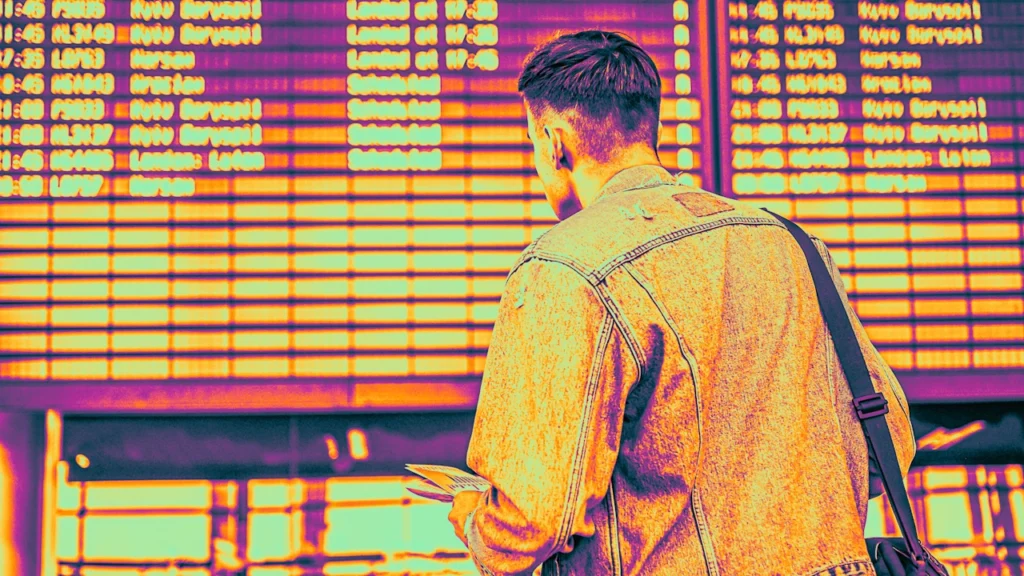
The Trump administration is backtracking on a plan that would have forced airlines to give passengers cash as compensation for late flights.
The Department of Transportation tossed out the proposal, which the Biden administration set into motion late last year, according to a filing posted on Thursday. In the filing, government officials called the decision “Consistent with Department and administration priorities.”
The new rule would have implemented a tiered system that required airlines to pay passengers between $200 and $775 for flight delays of more than three hours, depending on the duration of the delay. The same rule would have required airlines to rebook passengers dealing with canceled flights for free.
“This action we’re announcing is another step forward into a better era for commercial air travel—where the flying public is better protected and passengers aren’t expected to bear the cost of disruptions caused by airlines,” former U.S. Transportation Secretary Pete Buttigieg said at the time, noting that airlines received more than $50 billion in federal bailouts during the pandemic to keep them afloat.
Airlines also would have been required to cover meals, overnight lodging and transportation for passengers stranded from a flight cancellation or delay. The compensation would have been required in instances when the flight disruption was caused by an airline, like in instances of software meltdowns and mechanical issues.
In a statement to Fast Company, a Department of Transportation spokesperson said that the agency will reconsider other “extra-statutory” federal rules from the Biden administration that go beyond regulations put in place by Congress.
“We will faithfully implement all aviation consumer protection requirements mandated by Congress, including the requirement to refund ticket prices to passengers in the case of airline canceled or substantially delayed flights when consumers choose not to travel,” the spokesperson said.
Trump’s record on airlines
During his tenure, Biden’s Department of Transportation focused on implementing consumer-friendly regulations for the airline industry and addressing some of the post-pandemic chaos that saw flight cancellations and delays soar. In some instances, the requirements would bring U.S. airlines into parity with its European counterparts, which are required to provide compensation for late and canceled flights when the circumstances are not out of their control. In the U.S., airlines can opt in to compensating disgruntled fliers, but the customer service experience around disrupted flights is notoriously uneven.
In contrast, Trump has emphasized deregulation across the board — an agenda that will inevitably see the current administration peeling back many Biden-era rules. How those priorities will shake out for U.S. airlines and their passengers remains to be seen. So far, Trump has made efforts to revamp the threadbare air traffic control system. That move garnered praise from industry group Airlines for America, which celebrated the passage of Trump’s so-called Big Beautiful Bill and the president’s vision for a “golden age of air travel.”
“Few people have had the gumption to take on the vast undertaking of modernizing our nation’s complex ATC system, but President Trump and Secretary Duffy addressed the dire need quickly and are acting with urgency,” Airlines for America President and CEO Nicholas E. Calio said. The industry group also applauded the TSA’s decision to allow fliers to keep their shoes on, a major policy change the agency said would “modernize and enhance traveler experience” and shorten wait times in security lines.
Airlines might be happy with Trump’s deregulatory bent, but they are likely less pleased with the White House’s chaotic tariff crusade. With new tariffs in place, airlines stand to pay huge additional sums on top of the already massive cost of an aircraft when importing planes and parts built abroad into the U.S.